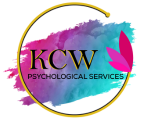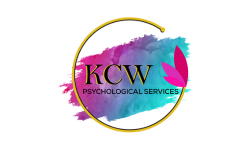
Understanding Music Therapy

Music therapy is a clinical practice that uses music interventions to accomplish individualized goals within a therapeutic relationship. This innovative approach leverages the emotional and psychological power of music to support mental health. It is particularly effective in addressing anxiety, depression, trauma, and other mental health issues.
The Role of Music in Mental Wellness
Music has a profound impact on our emotions and mental state. It can uplift our mood, reduce stress, and even alleviate symptoms of mental illness. By engaging with music in a therapeutic setting, individuals can experience significant improvements in their mental well-being.
How Music Therapy Works
In music therapy sessions, therapists use a variety of musical techniques, including listening to music, songwriting, lyric analysis, and improvisation. These activities help individuals express emotions, process experiences, and develop coping strategies.
Benefits of Music Therapy

Reducing Anxiety and Stress
Music therapy has been shown to reduce anxiety and stress levels. The soothing rhythms and melodies can lower heart rates and promote relaxation, providing a safe space for individuals to explore their feelings.
Improving Mood and Emotional Regulation
Engaging with music can significantly improve mood and help individuals regulate their emotions. It provides an outlet for expression and helps people understand and manage their feelings more effectively.
Enhancing Cognitive Function
Music therapy can improve cognitive functions such as memory, attention, and problem-solving skills. This is particularly beneficial for individuals with conditions like Alzheimer’s disease or dementia.
Supporting Trauma Recovery
For those dealing with trauma, music therapy offers a non-verbal medium to process and express complex emotions. It can help individuals reconnect with themselves and others, fostering a sense of safety and empowerment.
Real-Life Applications of Music Therapy
Case Studies
Numerous case studies highlight the effectiveness of music therapy. For example, patients with PTSD have found relief and a sense of normalcy through structured music therapy sessions. Similarly, children with autism spectrum disorders have shown improvements in communication and social skills.
Personal Stories
Individuals from all walks of life have shared their transformative experiences with music therapy. From battling depression to overcoming grief, music therapy has been a beacon of hope and healing.
The Science Behind Music Therapy
Neurological Basis
Research shows that music activates multiple areas of the brain, including those involved in emotion, memory, and motor control. This widespread activation helps explain why music therapy can be so effective for a variety of mental health conditions.
Evidence-Based Practice
Studies have consistently demonstrated the efficacy of music therapy. For instance, a 2020 study published in the Journal of Music Therapy found that music therapy significantly reduced symptoms of depression and anxiety in participants.

How to Get Started with Music Therapy
Finding a Qualified Music Therapist
To begin your journey with music therapy, it’s essential to find a qualified music therapist. Look for professionals who are certified by recognized bodies, such as the Certification Board for Music Therapists (CBMT).
What to Expect in a Session
A typical music therapy session might involve active participation, such as playing instruments or singing, as well as receptive activities like listening to music. Your therapist will tailor the sessions to meet your specific needs and goals.
The Future of Music Therapy
Growing Recognition
Music therapy is gaining recognition worldwide as a legitimate and effective form of treatment. As more research validates its benefits, we can expect to see wider adoption in various healthcare settings.
Integration with Technology
The integration of technology is expanding the reach and effectiveness of music therapy. Virtual sessions, apps, and other digital tools are making it more accessible to people who may not have local access to a certified therapist.
Conclusion: The Healing Power of Music
Music therapy offers a unique and powerful avenue for improving mental wellness. By harnessing the emotional and psychological benefits of music, individuals can find relief from their mental health challenges and lead more fulfilling lives. If you’re seeking a holistic approach to mental wellness, consider exploring the transformative potential of music therapy.
Related Articles
Related
The February Audit: The Best Time to Re-Evaluate Your Goals
We are officially in month two of the new year. Do you remember what your goals were? Setting goals for the new year does not have to be draining. At times, we tend to focus on the big picture, aka the big goal, but forget that it takes time, patience, and much...
Unwrapping Wellness: Managing Holidays and Mental Health
The holidays are here, and so are a variety of emotions that we may experience as we navigate the holiday season. Some people are ready to jump into the holiday spirit, while others are not and only want the year to end as soon as possible. Holidays can cause feelings...
Dia de los Muertos (Day of the Dead) & Grief
Dia de los Muertos (Day of the Dead) and grief are deeply connected to one another. Dia de los Muertos is a cultural celebration of life and memory for deceased loved ones. Originated in Mexico and now being celebrated in other parts of Latin America and the United...





